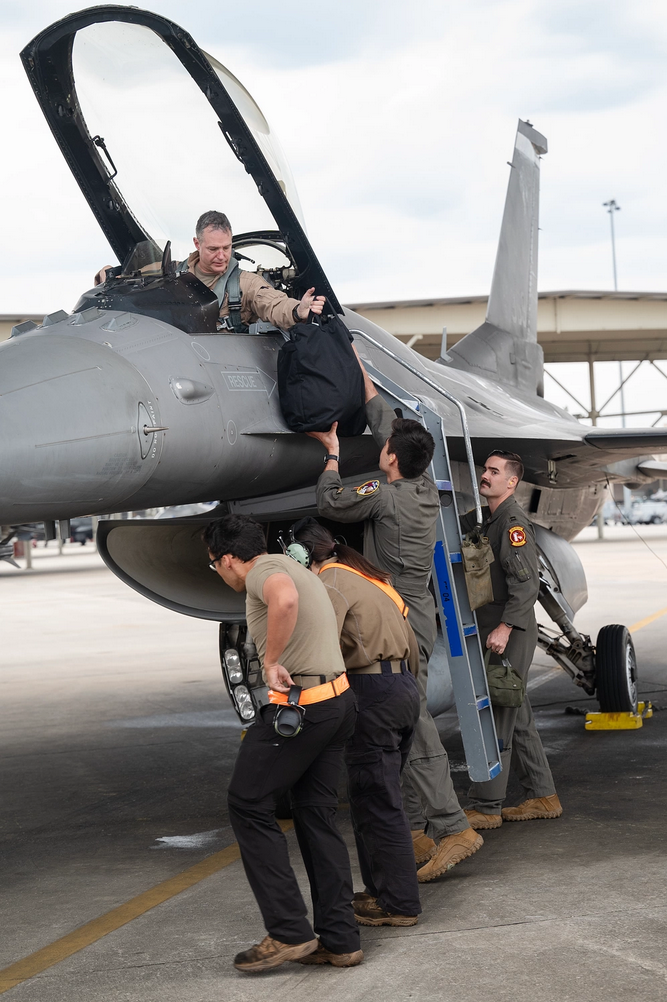
U.S. Air Force Lt. Gen. Alex Grynkewich, Ninth Air Force (Air Forces Central) commander, parks an F-16 Fighting Falcon after completing his final flight –fini-flight–as the AFCENT commander on April 9, 2024, at Shaw AFB, S.C. (U.S. Air Force Photo)
Proliferating systems in the European theater will be vital for bolstering NATO and deterring Russian revanchism, as Ukraine continues to battle Russia in the latter’s latest 2022 invasion of Ukraine, according to Gen. Alexus Grynkewich, the newly confirmed head of U.S. European Command (EUCOM). Grynkewich received a fourth star for his new position.
“As I look across the [NATO] alliance, there are certain countries that would have a very strong value proposition in terms of being able to bring unmanned technologies to bear whether they’re aerial technologies or maritime unmanned capabilities that have proven very effective in the Black Sea region, for example,” Grynkewich testified last week at a Senate Armed Services Committee hearing in response to a question from Sen. Ted Budd (R-N.C) on which emerging technologies EUCOM should emphasize.
“I would definitely put a high priority on those [unmanned systems],” Grynkewich said. “They’re very cost effective. They’re a way to build mass on the modern battlefield, and understanding that we’ll face mass in terms of the Russian threat, I think developing that asymmetric option is gonna be essential to European security in the future.”
Top European autonomous drone companies include the United Kingdom’s BAE Systems, France’s Delair and Thales Group, Portugal’s TEKEVER, and Germany’s Quantum Systems and Rheinmetall, which is working with the U.S.’ Anduril Industries to build the latter’s Fury and Barracuda drones.
The Trump administration has publicly wavered on the U.S. supporting Ukraine with more weapons and has favored a ceasefire, which the Russians have rejected.
In response to a question from Sen. Angus King (I-Maine) on whether it was strategically important for the U.S. to maintain its intelligence support for Ukraine, Grynkewich responded, “I think the Ukrainians have done an incredible job defending. They are forcing the Russians to make only incremental advances at a tremendous cost, and I think we should continue the effort to support them that has allowed them to perform so well.”
Asked by Sen. Tommy Tuberville (R-Ala.) whether Ukraine can win, Grynkewich replied, “I think Ukraine can win.”
“I think anytime your own homeland is threatened, you fight with a tenacity that’s difficult for us to conceive of, if we haven’t found ourselves in that same situation,” Grynkewich said.
Before becoming the head of EUCOM, Grynkewich was the Joint Staff’s Director of Operations and, before that, served as the commander of Air Forces Central, where he oversaw the Task Force-99 effort to improve detection and targeting through the use of small, inexpensive, networked drones.
A version of this story originally appeared in affiliate publication Defense Daily.